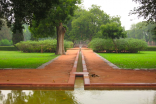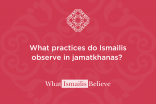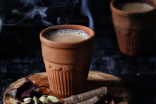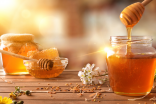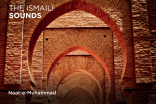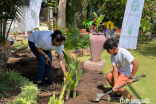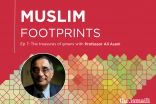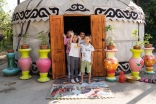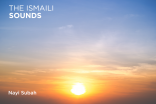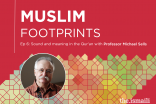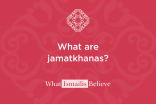Content Tagged with app
In ancient Athens and in Fatimid Cairo, a liberal arts education was considered the hallmark of a well-rounded citizen. This approach is vital today for its ability to foster critical thinking, creativity, and adaptability. That’s why the Aga Khan University’s newest faculty has built its undergraduate curriculum around it.
As people spend more time immersed in TikTok, Instagram Reels, and other social media feeds, there’s a common perception that society is losing touch with history and culture. However, technology also opens up avenues to strengthen our relationship with our cultural heritage. Institutions like the Aga Khan Trust for Culture (AKTC) have launched initiatives that leverage technology to make culture-based content easy to access.
Financial literacy is the ability to understand and use skills like budgeting, personal spending management, and investing. With these skills, we can better our relationship with money and understand how using it wisely can improve our financial security. So, the question is, why aren’t we teaching children about this sooner?
Ismaili practices in jamatkhanas are expressions of the spiritual bond between the hereditary Ismaili Imam-of-the-Time and his followers, as conveyed in the pledge of allegiance (bay‘a) that each Ismaili offers to the Imam. They include various forms of prayer mentioned in the Holy Qur’an and other expressions of piety and devotion through which Ismailis seek God’s grace and mercy through the intercession of the Prophet and the Imams. Jamatkhana practices are the sole prerogative of the Imam-of-the-Time and are specific to the Ismaili community.
When you’re next at the grocery store, reaching for that package of milk, why not consider an alternate option that’s more eco-friendly? To help keep your consumption as sustainable as possible, we’ve done some digging to unearth the most sustainable milk alternatives, and reviewed their taste and suitability for your tea and coffee needs!
Salima Visram grew up in Kenya — a land of striking beauty and vibrant colours. She always had selfless aspirations: her initial career goal was to work for the UN. But while at university in Canada, she learned about different ways to make a positive impact on the world, and her journey took an unexpected detour.
On the occasion of Milad-un-Nabi, the Ismaili is pleased to present Rang Laaee Hai by The Sufistics, in praise of Prophet Muhammad (peace be upon him and his progeny). During the course of his lifetime, the Prophet exemplified the values of patience, compassion, generosity, and forgiveness, all subtly expressed in this musical narrative.
In February this year, my life took an unexpected turn that left me grappling with emotions I never imagined I would face. At the age of 33, after a miscarriage, I found myself entangled in a web of challenges that would put my strength and determination to the test. As a woman, the struggle to overcome infertility is already a battle in itself, but when cancer entered the equation, it felt like an insurmountable mountain to climb.
In the picturesque valleys of northern Pakistan, Shabi Noor Khan's life took a fortuitous turn. Last year, he received a small donation of honey bees with which he managed to generate an income that helped to clear his debts and cover his daily expenses. Shabi Noor is just one beneficiary of the Socio-Economic Development Programme (SEDP) that's changing lives through beekeeping.
In celebration of Milad-un-Nabi this week, The Ismaili is pleased to present Naat-e-Muhammad, composed by Taufiq Karmali and Mujahid Hussain. The song, written in praise of Prophet Muhammad (peace be upon him and his progeny), expresses the believer’s love and salutations for the Prophet on the occasion of his birthday.
For more than a century, a key aspect of the Ismaili community’s identity has been informed by a deep commitment to a culture of care. This concept isn't just encouraged; it's celebrated throughout our global Jamat. Nowhere is this notion of care more evident than in our tradition of serving others.
This weekend in cities across the globe, a unique collaborative event is set to unfold. More than 58,000 people will come together to mark the third annual Global Ismaili CIVIC Day, in a display of kindness, generosity, and good citizenship.
On this week’s episode of Muslim Footprints, we discuss the history and significance of our cherished ginan tradition. Professor Ali Asani of Harvard University helps us explore the profound meanings, cultural significance, and spiritual depth in their verses — tune in to learn more.
Participation in formal prayers in Ismaili jamatkhanas is restricted to those who pledge their allegiance (bay‘a) to the Ismaili Imam-of-the-Time. In Shia Islam, the authority of the Imam is rooted in the notion of hereditary succession from Prophet Muhammad (peace be upon him and his progeny), and the practices observed in jamatkhanas are the sole prerogative of the Imam-of-the-Time.
The Global Centre for Pluralism today announced 10 finalists for the 2023 Global Pluralism Award. Presented every two years, the Award celebrates the inspiring and brave work that is helping to build more inclusive societies where diversity is valued and protected.
The Schools2030 Global Forum reconvened this summer, bringing together leaders in education to address a crucial question: How can we foster more inclusive schools, equitable education systems, and pluralistic learning societies for all?
The Ismaili is pleased to present Nayi Subah, or “A New Morning,” performed by music artists in the Far East. It was performed live for the first time at the finale of the Global Encounters Festival Qualifier event in Kuala Lumpur earlier this year. The song’s lyrics embody the concepts of hope, celebration, and joy — while the video showcases artistic talent from across the Far East Jamat.
We're excited to bring you a new episode of Muslim Footprints. This week, distinguished guest Professor Michael Sells takes us on a captivating journey through the profound connections between sound, language, and spirituality in the Qur’an. Whether you're familiar with the scripture or curious about its linguistic nuances, this episode promises to offer fresh insights and appreciation for the timeless wisdom of the Holy Book.
Join us for a new episode of The Ismaili Update as we look back at the exciting stories from the worldwide Jamat during the action-packed month of August.
Jamatkhanas are one of the many types of spaces of gathering and worship found among the world’s various Muslim communities. Today, Shia Ismaili Muslims use jamatkhanas as their primary space of worship and gathering, under the authority of the Ismaili Imam-of-the-Time.



